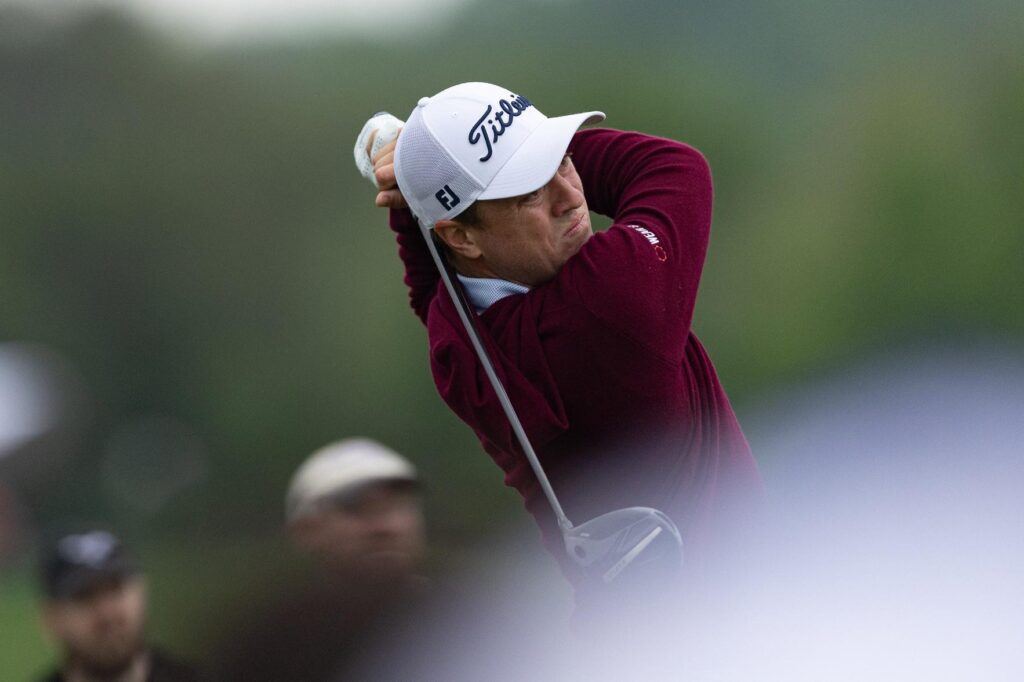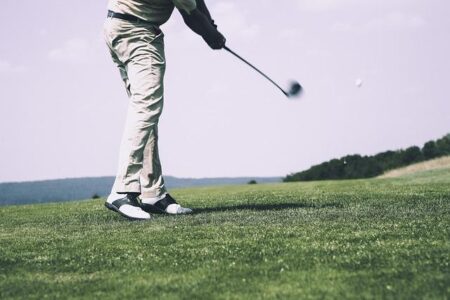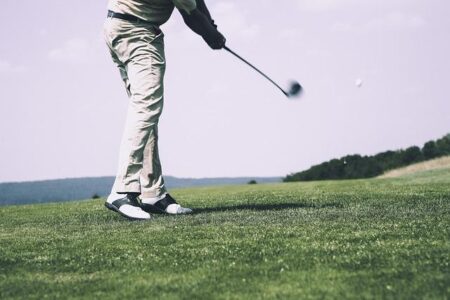The ‚Ā£Emotional Landscape‚Äč of the‚Äć PGA Championship: Insights from Player Inquiries
As golf enthusiasts eagerly await the ‚ĀĘprestigious‚ÄĆ PGA Championship, a rich tapestry of emotions‚Äč and social dynamics emerges alongside the sport’s esteemed‚ĀĘ traditions. Recent press conferences featuring leading players have unveiled ‚Äčmore than‚ĀĘ mere technical evaluations of swing mechanics and course challenges; ‚Äćthey expose underlying ‚Äčfeelings of envy and the intriguing habit of smoking. The article “Jealousy? ‚ĀĘSmoking? What‚Äč I Learned After Hearing 188‚ĀĘ PGA championship‚ĀĘ Questions” offers a fascinating examination‚Ā§ into how these themes intertwine, illuminating ‚Ā£their influence on professional athletes’‚Ā§ narratives. By exploring a multitude ‚Äčof probing questions, we gain valuable insights into the pressures and vulnerabilities that accompany competition at this elite level.Join us as ‚Ā£we dissect lessons learned from an overwhelming‚ĀĘ array‚ĀĘ of inquiries, providing an exclusive look into the minds of some‚Ā§ of golf’s most celebrated figures.
Exploring the Emotional‚ÄĆ Dynamics of Jealousy in Sports
Jealousy within competitive sports is‚ĀĘ a complex emotion ‚Ā£that manifests ‚Ā£in various forms,‚ÄĆ affecting both athletes and their supporters. While often perceived negatively, jealousy can also serve as a catalyst for improved performance as competitors challenge one‚Äč another to reach new heights. ‚ÄćAlthough ‚ÄĆit can foster an unhealthy atmosphere ‚ÄĆat‚Ā£ times, this emotion also drives innovation and determination among players. Athletes may experience jealousy due to several ‚Äćfactors:
- Acknowledgment for ‚ÄčAchievements: ‚Äč Players might feel envious when peers receive awards or media spotlight.
- Income Disparities: In professional sports settings, significant ‚Ā§earnings by top performers can breed resentment among teammates.
- Talent Comparisons: The perception that another competitor possesses superior natural abilities can intensify feelings of jealousy, impacting team dynamics.
This emotional complexity presents both advantages ‚Ā£and disadvantages; thus maintaining a ‚Äčbalance ‚Ā§between personal ambition and support for teammates is essential for fostering ‚ĀĘa healthy competitive environment.Here are some effective strategies athletes might adopt to manage feelings of jealousy:
| Coping strategy | Description |
|---|---|
| Introspection | Diving deep into ‚Ā£understanding what triggers jealous feelings aids in‚ĀĘ constructive management. |
| Obvious‚Äć Communication | Sparking conversations‚ÄĆ about emotions with teammates cultivates camaraderie. |
| Pursuing Personal Objectives | Dedicating ‚Ā£focus to self-improvement diminishes preoccupation with others’ successes. |
Examining‚ĀĘ Smoking’s Impact‚Ā§ on Performance:‚Ā§ Insights from PGA Championship Discussions
the recent‚Ā§ discussions surrounding golfers’ performances during‚ĀĘ the PGA‚Äč Championship have highlighted smoking as an intriguing ‚Äčfactor potentially ‚ÄĆinfluencing athletic capabilities. While it is widely recognized that smoking‚Ā§ adversely affects cardiovascular health and endurance levels, further investigation reveals a nuanced relationship where certain athletes ‚ÄĆview‚Äć smoking as a means to cope with intense competition ‚ÄĆpressure. ‚ÄčObservations ‚Äćmade ‚ĀĘduring championship events‚ÄĆ indicate that taking cigarette breaks can significantly alter‚Ā£ player concentration levels and rythm‚ÄĒprompting inquiries about‚Ā£ its effects on‚ÄĆ mental acuity alongside‚ĀĘ physical performance outcomes. These intricate interactions challenge simplistic views linking smoking solely ‚ĀĘwith negative consequences.
An‚Ā£ analysis based on‚Ā§ player feedback regarding‚ÄĆ smoking habits has yielded noteworthy insights summarized ‚ĀĘin the‚Ā§ following table detailing key observations:
| Type Of Player | Perceived Impact‚Ā£ Of ‚Ā§Smoking‚Äć | Effect On‚Äć Performance | ||||
|---|---|---|---|---|---|---|
| Momentary ‚ÄĆStress Relief | Inconsistent‚Äć Results | < tr >< td >Regular Smokers | Enhanced Focus | Better Short ‚ĀĘGame | < tr >< td>Causal Smokers | Distracting Influence |
This data not only highlights varying perspectives among golfers regarding smoking but also underscores‚ÄĆ the necessity for ‚ÄĆadditional research concerning its‚Äč implications on game strategy and results moving ‚ÄĆforward.as ‚Äćdiscussions around‚ÄĆ healthy ‚Ā£lifestyle choices continue within athletics,the‚Ā£ intersection betweenMental Well-beingand performance becomes increasingly vital for future ‚Ā£generations involved in sports.
‚Ā£
In Summary
The depth explored‚ĀĘ through inquiries related to ‚Äčthe PGA Championship illuminates not just competitive ‚ÄĆaspects ‚Ā£but also intricate emotions intertwined with high-stakes golfing experiences.As we delved ‚Äčinto themes such as jealousy alongside habits like ‚ĀĘsmoking ‚ĀĘamongst players,it ‚ĀĘbecame evident these matters resonate beyond mere fairways‚ÄĒreflecting psychological pressures faced by athletes.The sheer volume surrounding public curiosity ‚Ā§illustrates captivation towards golfers‚Äô‚ÄĆ personal lives along with complex dynamics shaping their ‚Äčperformances.As golf evolves further understanding these underlying elements will provide invaluable insights‚ÄĒnot only benefiting players but fans aspiring ‚Äćtowards excellence alike.the ongoing dialog prompted ‚ĀĘby events like The PGA championship will undoubtedly continue extending far ‚ÄĆbeyond scores alone‚ÄĒhighlighting how deeply interconnected ‚Ā£sport remains within human experience.








